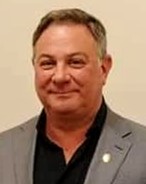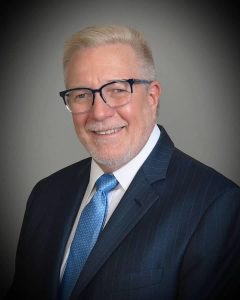202 NSA SEMINAR SESSIONS
Thursday, June 26th
Successful youth and gang crime reduction programs
8:00am – 9:00am | Room 303A | future of law enforcement
Technical Assistance providers from CRI-TAC and the National Gang Center review successful programs designed to redirect youth from violent and gang crime. Methodology and implementation guidance will be provided as well as an opportunity for attendees to discuss their own programs and receive feedback to improve outcomes.
PRESENTERS: Sean Baldwin, NGC, Jesenia Alonso, International Association of Chiefs of Police (IACP), Mitch Cunningham, National Sheriffs’ Association
 Sean Baldwin is a senior research associate with the Institute for Intergovernmental Research (IIR). In this role, he has provided subject matter expert support for several violent crime reduction strategies, including extensive work with the National Gang Center, coordinating law enforcement anti-gang training, as well as providing training and technical assistance to communities implementing the Office of Juvenile Justice and Delinquency Prevention’s (OJJDP) Comprehensive Gang Model.
Sean Baldwin is a senior research associate with the Institute for Intergovernmental Research (IIR). In this role, he has provided subject matter expert support for several violent crime reduction strategies, including extensive work with the National Gang Center, coordinating law enforcement anti-gang training, as well as providing training and technical assistance to communities implementing the Office of Juvenile Justice and Delinquency Prevention’s (OJJDP) Comprehensive Gang Model.
Prior to working with IIR, Mr. Baldwin served 25 years as a law enforcement officer in Fort Pierce, Florida. He worked as a patrol officer, violent crimes detective, community policing officer and was promoted through the ranks, serving his last nine years as Chief of Police.
Mr. Baldwin holds a master’s degree in criminal justice administration from Lynn University. He is also a graduate of both the Federal Bureau of Investigation’s National Academy (208th Session) and the Southern Police Institute’s Administrative Officers Course (113th Session).
 Deputy Chief Mitch Cunningham (ret.) has been a police officer for 39 years, most recently as Deputy Chief for the Wilmington North Carolina Police Department, retiring in 2019 and remaining as an auxiliary officer. Prior to that he was a police officer for the Montgomery County Department of Police, in Maryland, from 1985-2012. There he started a number of crime fighting initiatives including the first Career Criminal Unit, the first regional auto theft team and started the regional data sharing system NCR LInX, in the National Capitol Region which connects hundreds of police agencies, leading to countless arrests and supporting anti-terrorism efforts in the wake of 9-11.
Deputy Chief Mitch Cunningham (ret.) has been a police officer for 39 years, most recently as Deputy Chief for the Wilmington North Carolina Police Department, retiring in 2019 and remaining as an auxiliary officer. Prior to that he was a police officer for the Montgomery County Department of Police, in Maryland, from 1985-2012. There he started a number of crime fighting initiatives including the first Career Criminal Unit, the first regional auto theft team and started the regional data sharing system NCR LInX, in the National Capitol Region which connects hundreds of police agencies, leading to countless arrests and supporting anti-terrorism efforts in the wake of 9-11.
After being selected as Deputy Chief for the Wilmington (North Carolina) Police Department in 2012, he launched a number of successful efforts to drive down gang violence plaguing the city. He also started the agency’s first Peer Support team, created a college scholarship fundraiser -Send a Cop to College- to assist with the professionalization of its future leaders and other leadership efforts. Wilmington North Carolina was designated as the city with the worst problem regarding opioids and so he implemented a number of initiatives to address this including being the second program in North Carolina that outfitted WPD officers with naloxone. He also began the LEAD program, a pre-arrest diversion program that brought public safety and public health officials to work together to reduce the impacts of opioids. He also was a founder of the Quick Response Team that ensured those who overdosed received care within 72 hours. He was selected to serve on the NC Attorney General’s Task Force on Opioids.
During this period he has made numerous presentations across the country and internationally regarding community policing, managing multijurisdictional investigations and reducing violent crime. He was selected to teach at the FBI’s International Law Enforcment Academy in Budapest Hungary as well as their facility in Roswell New Mexico. As a facilitator with the National Institiute of Justice he has supported their efforts to promote data sharing and collaborative projects. PERF requested his participation in focus groups for multijurisdictional partnerships. Additionally he has been selected as a Peer Reviewer for the Bureau of Justice Assistance to evaluate new research proposals that support law enforcement. He was also selected to support the Major Cities Chief for their intel subcommittee and was a member of the Baltimore Washington HIDTA advisory committee, to oversee the strategic direction of the HIDTA and reviewing outcomes. He has facilitated focus groups to increase client satisfaction and increase productivity.
He is a certified training instructor who worked as a law enforcement training coordinator for Cape Fear Community College as well as teaching for the University of North Carolina at Wilmington and Louisiana State University. He is currently the Chief Law Enforcement Advisor for the National Sheriffs Association. In this role he has provided technical support for clients all around the country seeking to reduce the impact of opioids in their communities. He also serves as an advisory board member for PTACC, a police and treatment community consortium as well as written articles and reported on innovations in law enforcement which assist in successful opioid response strategies.
He was previously a member of Big Brothers and Big Sisters of the National Capitol Region and is currently the Vice Chairman of the Board for Soaring as Eagles a community outreach non-profit serving families of Title 1 schools.
 Jesenia Alonso, LCSW, is a program manager at the International Association of Chiefs of Police (IACP). She oversees the Collaborative Reform Initiative Technical Assistance Center (CRI-TAC), in partnership with the Department of Justice’s Office of Community Oriented Policing Services (COPS Office) and eight other leading law enforcement membership organizations. CRI-TAC provides customized training and technical assistance to state, local, tribal, territorial, and campus agencies throughout the United States.
Jesenia Alonso, LCSW, is a program manager at the International Association of Chiefs of Police (IACP). She oversees the Collaborative Reform Initiative Technical Assistance Center (CRI-TAC), in partnership with the Department of Justice’s Office of Community Oriented Policing Services (COPS Office) and eight other leading law enforcement membership organizations. CRI-TAC provides customized training and technical assistance to state, local, tribal, territorial, and campus agencies throughout the United States.
With over 13 years of experience in victim services and mental health, Ms. Alonso has developed innovative programs and delivered comprehensive national and international training to various professional audiences, including law enforcement, victim advocates, judicial personnel, medical providers, and other key stakeholders.
Before joining the IACP, Ms. Alonso held leadership positions as the Director of Victim Resources at the National Center for Victims of Crime and Senior Victim Advocate for Fairfax County Domestic and Sexual Violence Services. In these roles, she developed and implemented trauma-informed intervention models that enhanced the response and support for crime victims. Ms. Alonso is a licensed clinical social worker and certified Clinical Trauma Specialist, holding a master’s degree in social work from Virginia Commonwealth University. Through her clinical background and extensive field experience, Ms. Alonso is dedicated to advancing policies and practices that enhance community well-being and public safety.
Patrol Essentials – Dealing with the Disorder
8:00am – 9:00am | Room 303B | Future of Law Enforcement
As community policing strategies change, new drug sentencing guidelines emerge, and more calls for service involve someone under the influence of a mood-altering substance and/or an untreated mental health diagnosis, it is imperative that law enforcement be equipped with the knowledge to recognize and respond to this population. This requires that we draw on the distinctive expertise and experience of law enforcement, as well as the unique resources and insights of the community in which it serves.
On calls for service, if you encounter someone who is or has experiences with drug or alcohol issues, there’s a good chance that a mental health condition is present as well. In fact, the 2014 National Survey of Drug Use and Health estimates that one-third of people experiencing substance abuse issues also suffer from a mental illness. In the mental health field, the relationship between mental illness and substance use is often referred to as “co-occurring disorder” or “dual diagnosis,” and a growing body of evidence supports a strong connection between the two.
Although pinpointing the exact link between substance use and mental illness is difficult, we do know that substance abuse and many mental illnesses are tied to similar centers of the brain. For example, depression depletes certain neurotransmitters, while alcohol energizes the same system, offering temporary relief from depression’s symptoms. As symptoms re-emerge, individuals experiencing depression will often self-medicate with alcohol, leading to a vicious cycle of substance use.
When law enforcement expertise is at the front end of the criminal justice engagement (Intercept 0 and 1) it puts individuals in a position to be diverted to the model of services to best meet their needs, remove barriers to services, and decrease instances where the jail becomes a holding facility for undiagnosed or untreated mental health and substance use related issues and reduce jail liability. During this session, we will discuss the collaborative approach to addressing substance use and mental health disorders through the lens of a patrol office equipped with knowledge on how to navigate systems and reduce agency liabilities through collaborative approaches.
PRESENTER: Vanessa Matthews, Division Director, Inspector-Retired, Allrise
 Vanessa Matthews, division director for the Treatment Cour Institute (TCI) , a division of ALLRISE. She was employed as a police officer with Oklahoma City from 1990 to 2012, working with the Oklahoma County drug court from May 1998 to September 2009. She was instrumental in the development of the drug court program, including policy manual development, budgeting, and staff training. Her training presentations and curriculum development include recognizing the signs of mental illness, identifying a subject under the influence of drugs, effectively communicating with consumers, strengths-based interviewing, team building, drug testing, program planning and development, grant writing, community supervision, cultural proficiency for consumers served, ethics and confidentiality in treatment programs, psychopharmacology of drugs for first responders, and community resource identification and development. In 2014, Ms. Matthews was appointed by the governor of Oklahoma to serve on the Oklahoma Pardon and Parole Board. In 2015 she was reappointed to a four-year term and elected chair of the organization. She joined the staff of NADCP in 2016 to serve as the director of NDCI. Ms. Matthews has an associate degree from Oklahoma State University in applied police science and a bachelor’s degree from the University of Central Oklahoma in criminal justice. In July 2020, Ms. Matthews was elected to serve as a member of the national NAMI Board of Directors. In May of 2023, Ms. Matthews was selected to serve as part of the IACP Mental Health workgroup.
Vanessa Matthews, division director for the Treatment Cour Institute (TCI) , a division of ALLRISE. She was employed as a police officer with Oklahoma City from 1990 to 2012, working with the Oklahoma County drug court from May 1998 to September 2009. She was instrumental in the development of the drug court program, including policy manual development, budgeting, and staff training. Her training presentations and curriculum development include recognizing the signs of mental illness, identifying a subject under the influence of drugs, effectively communicating with consumers, strengths-based interviewing, team building, drug testing, program planning and development, grant writing, community supervision, cultural proficiency for consumers served, ethics and confidentiality in treatment programs, psychopharmacology of drugs for first responders, and community resource identification and development. In 2014, Ms. Matthews was appointed by the governor of Oklahoma to serve on the Oklahoma Pardon and Parole Board. In 2015 she was reappointed to a four-year term and elected chair of the organization. She joined the staff of NADCP in 2016 to serve as the director of NDCI. Ms. Matthews has an associate degree from Oklahoma State University in applied police science and a bachelor’s degree from the University of Central Oklahoma in criminal justice. In July 2020, Ms. Matthews was elected to serve as a member of the national NAMI Board of Directors. In May of 2023, Ms. Matthews was selected to serve as part of the IACP Mental Health workgroup.
Best Practices for Staffing Analysis
8:00am – 9:00am | Room 302 | Future of Law Enforcement
Patrol operations represent the cornerstone of law enforcement, serving as both the public face of an agency and one of its most significant operational investments. As the most visible and scrutinized division, patrol sets the standard for customer service delivery and community trust. However, patrol staffing decisions are often based on outdated methodologies or institutional habits rather than solid data.
In an era where agencies face unprecedented staffing challenges through attrition and hiring difficulties, the need for sophisticated, data-driven deployment strategies has never been more critical. This workshop addresses this crucial need by introducing participants to proven analytical frameworks for patrol staffing analysis. Attendees will learn how to identify and utilize the most relevant metrics for their agency, enabling them to create defensible staffing models that optimize resource allocation while maintaining service levels.
The session focuses on transforming raw data into actionable insights, providing agencies with the tools they need to make informed, evidence-based decisions about patrol deployment.
Participants will leave equipped with practical methodologies for measuring workload and creating data-driven staffing models that can withstand scrutiny while improving operational efficiency.
PRESENTER: Lori Frank, Director of Research and Analysis, Corona Solutions
 After a distinguished 26-year career in law enforcement as a crime analyst, Lori brings extensive field experience and analytical expertise to her role as Director of Research & Analysis at Corona Solutions. Throughout her law enforcement career, she developed and implemented data-driven strategies that helped optimize patrol operations and resource allocation across multiple jurisdictions.
After a distinguished 26-year career in law enforcement as a crime analyst, Lori brings extensive field experience and analytical expertise to her role as Director of Research & Analysis at Corona Solutions. Throughout her law enforcement career, she developed and implemented data-driven strategies that helped optimize patrol operations and resource allocation across multiple jurisdictions.
In her current position at Corona Solutions, Lori examines, audits, and analyzes complex datasets to measure patrol performance and provide comprehensive workload analysis. Her work enables law enforcement agencies to make informed decisions about staffing, resource deployment, and operational strategies. By combining statistical analysis with practical law enforcement experience, she helps agencies optimize their operations while maintaining high standards of public safety and service.
She regularly consults with police departments of all sizes to develop customized solutions that address their specific operational challenges. Her data-driven recommendations have helped agencies improve their efficiency and enhance community service levels while effectively managing limited resources.
Throughout her career, she has remained committed to advancing the field of law enforcement analytics through evidence-based practices and innovative methodologies.
Lori served a combined 16 years on the executive boards of the Colorado Crime Analysis Association (CCAA) and the International Association of Crime Analysts (IACA). She is a POST Certified trainer, an Adjunct Instructor at Front Range Community College in their POST Academy, and an Advanced Certified Law Enforcement Planner.
Lori has been a featured speaker on patrol staffing and resource allocation for the International Association of Crime Analysts (IACA), the International Association of Law Enforcement Planners (IALEP), the National Sheriff’s Association (NSA), the Arizona Association of Crime Analysts (AACA), the Florida Crime and Intelligence Analyst Association (FCIAA), the Massachusetts Association of Crime Analysts (MACA), the Northwest Regional Crime Analysis Network (NORCAN), the New York State Division of Criminal Justice and Public Safety (DCJS), the Mid-America Regional Crime Analysis Network (MARCAN), and the California Crime and Intelligence Analysts Association (CCIAA).
OPVEE: The Game-Changer in Opioid Overdose Reversal?
8:00am – 9:00am | Room floridian C | Jail Operations
In this seminar, the speaker will report a case study of opioid overdose reversal from reviewed bodycam footage of a patient who received intranasal nalmefene (OPVEE). This case study provides data to support that intranasal nalmefene can potentially produce a rapid and effective reversal of opioid overdose. Additional studies will be important in establishing the role of intranasal nalmefene in the treatment of opioid overdose by Sheriff’s officers and first responders, as well as its impact on clinical outcomes once patients arrive at the accepting medical facility.
PRESENTER: Michel Sucher, M.D., DFASAM, President, Sucher Medical Management, Ltd.
 Dr. Sucher was educated at Wayne State University where he received a Bachelor of Science Degree in 1968 and a Medical Degree in 1972. Dr. Sucher’s internship was at Sinai Hospital of Detroit in Detroit, Michigan and he underwent residency training at Indiana University Medical Center in Indianapolis, Indiana. From 1974 through 1994 Dr. Sucher practiced emergency medicine and served as emergency department director at two Honor Health facilities in Scottsdale (Osborn and Shea). He served as President of the Medical Staff of Scottsdale Healthcare (now Honor Health) Osborn during 1994.
Dr. Sucher was educated at Wayne State University where he received a Bachelor of Science Degree in 1968 and a Medical Degree in 1972. Dr. Sucher’s internship was at Sinai Hospital of Detroit in Detroit, Michigan and he underwent residency training at Indiana University Medical Center in Indianapolis, Indiana. From 1974 through 1994 Dr. Sucher practiced emergency medicine and served as emergency department director at two Honor Health facilities in Scottsdale (Osborn and Shea). He served as President of the Medical Staff of Scottsdale Healthcare (now Honor Health) Osborn during 1994.
He practices addiction medicine and served as the medical director of the physician health program/professional health programs for the Arizona Medical Board and the Arizona State Board of Dental Examiners from 1992 until November, 2019 when he transferred those programs to Community Bridges, Inc. He was also President of the California Physicians Health Program from its founding in 2008 until May 2020. He has served as the President of the Nevada Professional Assistance Program since August 2017. In June, 2024 this program merged into the Nevada Professionals Recovery Network where he is currently the Medical Director. Additionally, he serves a consultant in addiction medicine to most other healthcare regulatory agencies and boards in Arizona.
He has served as the Acting Medical Director of the Division of Behavioral Health at the Department of Health Services, State of Arizona (2005-2006). Additionally, he served as the Acting Medical Director of the Bureau of Emergency Medical Services at the Department of Health Services, State of Arizona (2002-2004).
He served as the Chief Medical Officer for Community Bridges Inc. which is a community-based substance abuse and mental health treatment program in the greater Phoenix area and throughout the state of Arizona from 2002 until April 2020. He was appointed to the CBI Board of Directors in April 2020 upon his retirement as CMO. He was also appointed as a member of Board of Directors of the Community Bridges Foundation in 2020.
He also served as the medical director for Community Medical Services from 2011-2016, which is the largest opioid treatment program in Arizona and has OTP programs in 11 other states. He remains as a medical advisor to the CEO and an attending addiction medicine physician for Community Medical Services in their Arizona facilities. He was appointed Medical Director, AZ West Region for CMS effective December 2023 and as of December 2024 he was appointed Medical Director, Arizona Region for CMS.
Presently, as a consultant to Community Bridges, Inc. he serves as senior medical director of the CBI Professional Medical Monitoring Program and as Program Director of the CBI/Honor Health Addiction Medicine Fellowship. Dr. Sucher directed the formation of the first Addiction Medicine Fellowship program in Arizona in 2018 as a collaboration between CBI and Honor Health.
From May 2019 until May 2023, he served as the Executive Medical Director of Meadows Behavioral Healthcare which is a nationally known treatment facility network for substance use disorders, sexual compulsivity, trauma and eating disorders. In that role he assisted MBH in developing a world class Medication Assisted Treatment Program and also was the Clinical Architect of the Meadows Malibu Health Professionals Treatment Program.
In 2021 He became a Medical Advisor to Grace Sober Living Homes in Phoenix, AZ. In 2022 he was appointed as a member of the Board of Governors of Via Linda Behavioral Health Hospital. VLBHH is a joint venture between Honor Health and Universal Health Services.
Effective November 2023, Dr. Sucher has accepted a position as Lead Addiction Medicine Physician-Malibu Professionals Program with All Points North (APN).
Dr. Sucher is a member of the medical staffs of Honor Health Osborn, Shea and Thompson Peak Hospitals. He also was a member of the medical staff of Banner Behavioral Health Hospital all in Scottsdale, Arizona from 1992-2023. He is the medical director of physician health for Honor Health and the consultant for physician health for the Banner Health system.
He holds teaching positions throughout the greater Phoenix metropolitan area. These include Midwestern University, AT Still University and the University of Arizona Medical Schools.
Dr. Sucher is a Distinguished Fellow of the American Society of Addiction Medicine. He was granted Diplomate Status by the American Board of Addiction Medicine in 2009. He is also certified as a Medical Review Officer by ASAM. Additionally, he is a Past President of the Arizona Society of Addiction Medicine. He is a nationally known speaker on addiction medicine and professional health issues.
From January 1995 through July 2001 Dr. Sucher served as Senior Vice President and Chief Medical Officer of Rural/Metro Corporation. His responsibilities included oversight and management of all medical issues of the corporation including education and training, quality improvement, corporate compliance, government relations and business development. From early 2000 until July 2001, he served as CEO of Rural/Metro Latin America which provided services in Argentina, Bolivia and Brazil. Rural/Metro Latin America was a $ 55MM annual revenue business unit of Rural/Metro Corporation. Rural/Metro Corporation was, at that time, the 2nd largest ambulance company in the United States.
Writing a Personal Leadership Statement
9:15AM – 10:15AM | Room 303A | Leadership
Great leaders lead with purpose—and that starts with knowing who you are and what you stand for. In this hands-on, practical session, we’ll work together to craft your personal leadership statement—a clear reflection of your values, vision, and what truly drives you. Through guided reflection and real-world application, you’ll gain clarity on your leadership voice and how to use it with confidence. You’ll leave with a statement that not only motivates others but also grounds you when leadership gets tough. Whether you are new to leadership, or have been at it for years, this session will help you lead with authenticity, clarity and purpose.
PRESENTER: Paul Laney, President/CEO, Drive the Road Leadership – PDL Connect Consulting, LLC, and Mary Phillippi, President/CFO, Drive the Road Leadership – PDL Connect Consulting, LLC
 Paul D. Laney served as Sheriff in Cass County, ND from 2007-2018. He worked for the Fargo Police Department from 1989-2007. He is a Marine Corps veteran. Sheriff Laney is co-owner/CEO of PDL Connect Consulting LLC., He consults for several organizations as well as instructs for the National Staff and Command College and the National Sheriff’s Association.
Paul D. Laney served as Sheriff in Cass County, ND from 2007-2018. He worked for the Fargo Police Department from 1989-2007. He is a Marine Corps veteran. Sheriff Laney is co-owner/CEO of PDL Connect Consulting LLC., He consults for several organizations as well as instructs for the National Staff and Command College and the National Sheriff’s Association.
Sheriff Laney has over 2,000 hours of law enforcement training in his career. Sheriff Laney is a graduate of Class 137 of the School of Police Staff and Command (SPSC) and graduated from the FBI National Academy (FBINA) Class 255 in 2014. He has taught courses for Rasmussen College and the University of Mary.
Sheriff Laney has served on the Board of Directors for the Dakota Territory Sheriff’s Association and has served on the Board of Directors of the North Dakota Sheriff’s and Deputies Association. He also served on the Board of Directors for the North Dakota Association of Counties (NDACo) and the Board of Trustees for the United Way of Cass Clay. Sheriff Laney served on the Board of Directors for the National Sheriff’s Association for 6 years and still serves on three national committees, the Drug Enforcement Committee, the Awards Committee and the Homeland Security Committee for the National Sheriff’s Association. Sheriff Laney hosted a weekly radio show called Law Talk with Sheriff Laney on KFGO Radio from 2010-2012. Sheriff Laney was named the E911 Institutes “Government Leader of the Year” for 2011 and was the National Sheriff’s Association’s 2012 Ferris E. Lucas “National Sheriff of the Year.” On August 13, 2015 during the North Dakota Peace Officers Association Annual Conference, Sheriff Laney was presented the Lone Eagle Award in recognition of his, “Outstanding and Dedicated Law Enforcement in the State of North Dakota.” He was also presented the National Sheriff’s Associations 2017 “President’s Award” for his leadership and service during the Dakota Access Pipeline (DAPL) protests.
 Mary Phillippi is the retired Director of the Red River Regional Dispatch Center (RRRDC) located in the heart of the Fargo-Moorhead metropolitan area. This consolidated Center has been recognized as the first of its kind as it serves Public Safety agencies in two separate states. The Center, which began in 2002, employs fifty full-time employees and serves fifty-seven Public Safety agencies in North Dakota and Minnesota.
Mary Phillippi is the retired Director of the Red River Regional Dispatch Center (RRRDC) located in the heart of the Fargo-Moorhead metropolitan area. This consolidated Center has been recognized as the first of its kind as it serves Public Safety agencies in two separate states. The Center, which began in 2002, employs fifty full-time employees and serves fifty-seven Public Safety agencies in North Dakota and Minnesota.
Ms. Phillippi has nearly 36 years of Public Safety Communications experience. She started her career in Moorhead/Clay County, MN in 1988 as a Communications Operator. In 2002, when the Fargo/Cass, ND and Moorhead/Clay, MN dispatch centers consolidated she was promoted to Shift Supervisor. She was promoted to Assistant Director in 2010. Ms. Phillippi served as Director from April 2015-January 1st , 2024.
Ms. Phillippi is a member of the Association of Public-Safety Communication Officials (APCO) and National Emergency Number Associations (NENA). She received the ND Chapter of APCO Supervisor/Manager of the year in 2004 for her exceptional leadership and professionalism in contributing to public safety in North Dakota. She received the designation of Emergency Number Professional (ENP) from the National Emergency Number Association. Ms. Phillippi holds a Bachelor of University Studies with a Management Concentration from the University of Mary, Fargo. Ms. Phillippi is the co[1]owner/CFO of PDL Connect Consulting, L.L.C.
Walking with the Wounded
9:15AM – 10:15AM | Room 303B | Officer Wellness
The mission of The Wounded Blue is to improve the lives of injured and disabled law enforcement officers through support, education, assistance and legislation. WALKING WITH THE WOUNDED is an educational workshop created by survivors, for survivors in order to raise awareness to the struggles of an often overlooked group – those who are severely injured while actively employed. Attendees will hear first hand how command decisions and agency policy can affect the vocational value of an agency member, bring stress to the member’s family, and impact agency morale. Workshop speakers are critical incident survivors and former supervisors who use their experience to bring positive change to our profession.
PRESENTERS: Randy Sutton, Founder, The Wounded Blue, Bob Bemis, Director of Training, The Wounded Blue
 Randy was one of the most featured officers on the popular television series “COPS”, having appeared in three separate seasons which led to his being cast in a role as a police officer in the Academy Award winning film, “CASINO” with Robert Deniro and Sharon Stone. Other film and TV roles followed, including “FOOLS RUSH IN”, “MISS CONGENIALITY II”, “THE ROAD HOME”, “CLOVERS MOVIE”, “AMERICA’S MOST WANTED” and a co-starring role opposite James Caan in the pilot episode of “LAS VEGAS”.
Randy was one of the most featured officers on the popular television series “COPS”, having appeared in three separate seasons which led to his being cast in a role as a police officer in the Academy Award winning film, “CASINO” with Robert Deniro and Sharon Stone. Other film and TV roles followed, including “FOOLS RUSH IN”, “MISS CONGENIALITY II”, “THE ROAD HOME”, “CLOVERS MOVIE”, “AMERICA’S MOST WANTED” and a co-starring role opposite James Caan in the pilot episode of “LAS VEGAS”.
Randy was born and raised in Princeton New Jersey, where after graduating High School, he joined the Princeton Borough Police department becoming one of the youngest Police Officers in the state. He served the town for ten years before joining the Las Vegas Metropolitan Police Department where he served for almost 24 years, retiring at the rank of Lieutenant. He is recognized as one of the most highly decorated officers in the LVMPD history, receiving awards for valor, community service, exemplary service, and lifesaving. He has trained thousands of American law enforcement officers in the subject of “Policing with Honor,” and has received the Points of Light award from the President of the United States. Sutton is the author of “True Blue: Police Stories by Those Who Have Lived Them,” “A Cop’s Life,” “True Blue: To Serve and Protect,” and “The Power of Legacy: Personal Heroes of America’s Most Inspiring People.”
 Sergeant Robert “Bob” Bemis retired in 2017 as a Supervisor in the Operational Training Division at the Pennsylvania State Police Academy in Hershey. With over 30 years of law enforcement experience, Sgt. Bemis spent more than a decade as a trainer in many police disciplines, specializing in officer safety, self-defense and civil disorder tactics. He worked in previous assignments as both a Patrol Trooper and Patrol Supervisor, at several stations in western Pennsylvania. Sgt. Bemis was also assigned to the Forensic Services Unit, investigating major crime and accident scenes with emphasis on evidence collection and fingerprint analysis.
Sergeant Robert “Bob” Bemis retired in 2017 as a Supervisor in the Operational Training Division at the Pennsylvania State Police Academy in Hershey. With over 30 years of law enforcement experience, Sgt. Bemis spent more than a decade as a trainer in many police disciplines, specializing in officer safety, self-defense and civil disorder tactics. He worked in previous assignments as both a Patrol Trooper and Patrol Supervisor, at several stations in western Pennsylvania. Sgt. Bemis was also assigned to the Forensic Services Unit, investigating major crime and accident scenes with emphasis on evidence collection and fingerprint analysis.
In March 2015, Sgt. Bemis was severely injured while assisting a disabled motorist along an interstate highway. Following months of hospitalization and rehabilitation, Sgt. Bemis returned to his duties at the Academy, and continued teaching for more than a year before retirement. He shares the experience of his final 22 months in law enforcement as author of the book – Forged in Scars & Stripes: A Trooper’s Victory Over Critical Injury.
Following retirement, Sgt. Bemis continues to provide training on a variety of law enforcement subjects, and travels to raise awareness to the hazards present to emergency responders along our highways. He currently serves as Director of Training and Peer Advocate for The Wounded Blue, the national support and assistance organization for injured & disabled officers.
He is a veteran of the United States Marine Corps, serving on active duty from 1986 to 1992. As a Military Policeman, he performed high-level security assignments, first as a member of the helicopter squadron responsible for transporting the President, also known as “Marine One”; and later, for the National Military Command Center at the Pentagon.
Tailored MAT Program- A Design/Build to Success
9:15AM – 10:15AM | Room 302 | jail operations
Successful MAT implementation is not ONE Size Fits All. This presentation will outline the presenters’ collective experience activating specifically designed programs in jails and prisons around the country. Successful implementation requires assessment of Set, Setting and Dose for not only the patient, but for the facility as a whole.
• Set- mindset of staff and population toward treatment. Assessing needs and limitations.
• Setting- what does the physical plant safely allow as a service delivery model. How to work within the framework of correctional partners to safely deliver treatment that enhances security, reduces violence and improves recovery. Good Security = Good Treatment, Good Treatment = Good Security
• Dose- Review the Primary Care Model – pharmacological and clinically driven by provider and client. This training will present relevant case studies.
Tertiary Care Model supports Primary via intensity/frequency of cognitive treatment milieus. Modified Therapeutic Communities (residential), Day Treatment (IOP), Group and Individual (OP), Offsite Office Based Opioid Tx Program (OBOT), Onsite Mobile Opioid Tx Program (MOTP).
Seminar to include demonstrations of program growth and community partnerships across MAT portfolio.
PRESENTERS: Steve Tomlin, Chief Strategy Officer, YesCare, Sylvie Stacy, Utilization Management Medical Director / Addiction Medicine Specialist, YesCare, Crystal Gold, National MAT Director
 With nearly 30 years of facility management, hands-on operations, behavioral health, and quality control experience, Mr. Tomlin leads YesCare strategic growth initiatives. He has overseen all facets of multi-site, multi-state operations in both adult and adolescent populations.
With nearly 30 years of facility management, hands-on operations, behavioral health, and quality control experience, Mr. Tomlin leads YesCare strategic growth initiatives. He has overseen all facets of multi-site, multi-state operations in both adult and adolescent populations.
As Chief Strategic Innovation Officer, leading YesCare’s innovative MAT services, Reentry and Community Partnerships. Tomlin’s wide range of expertise includes deep experience in direct care, where he began his career
He has worked in substance abuse/behavioral health with incarcerated and formerly incarcerated Returning Citizens Reentry both behind the walls and in Residential Reentry settings for County and State populations. He has overseen all aspects of facility operations in both direct care and executive roles making him uniquely qualified to interpret client needs, design service delivery methods and oversee through implementation.
Tomlin led the design and activation of Hoffman Hall, a Philadelphia Department of Prisons partnership that reduced recidivism by 24 percent and in 2016 won the ACA Innovations in Corrections Award.
 Sylvie Stacy received an MD from UMass Medical School and an MPH from Johns Hopkins. She is dually board certified in addiction medicine and in preventive medicine. She has 9 years of experience practicing correctional medicine.
Sylvie Stacy received an MD from UMass Medical School and an MPH from Johns Hopkins. She is dually board certified in addiction medicine and in preventive medicine. She has 9 years of experience practicing correctional medicine.
As corporate Addiction Medicine Specialist, Dr. Stacy works with corporate and facility clinical leadership to improve delivery of addiction treatment services, serves as a clinical advisor on the topic of addiction treatment to clinical staff and clients, and provides medical consultation services relating to addiction treatment to clinical staff in facilities as needed.
Dr. Stacy also serves as Utilization Management Medical Director and responsible for the evaluation of outpatient referrals and inpatient direct admissions for medical appropriateness.
Dr. Stacy’s positions have involved clinical oversight and/or direct clinical work in prisons in AL, AZ, ID, KS, MD, MI, MO, and WY, and in jails in AL, AZ, CA, FL, GA, IA, KY, LA, MD, MA, MI, NV, NJ, NM, OH, OK, OR, PA, TX, VA, and WA.
 Crystal Gold has a Master’s degree from Northeastern University in Criminal Justice and almost 10 years of experience with medication assisted treatment in the correctional setting. She has spearheaded the implementation, maintenance and expansion of nearly all models of MAT, including opioid treatment programs, and related reentry services. With this expertise, comes experience with regulatory audits by state governing bodies, SAMHSA, NCCHC, and the DEA.
Crystal Gold has a Master’s degree from Northeastern University in Criminal Justice and almost 10 years of experience with medication assisted treatment in the correctional setting. She has spearheaded the implementation, maintenance and expansion of nearly all models of MAT, including opioid treatment programs, and related reentry services. With this expertise, comes experience with regulatory audits by state governing bodies, SAMHSA, NCCHC, and the DEA.
Preview of The Addict’s Wake, Law Enforcement Film
9:15AM – 10:15AM | Room floridian C | Future of Law Enforcement
We will watch this latest film, created especially for Law Enforcement officers. Following the 38-minute film, there will be a panel discussion with Lisa Hall, the producer of the film and the three officers whose organizations are featured. We want this film to foster a vibrant conversation and inspire new ideas for all who attend. Do sheriff’s and deputies have a role to play in stabilizing an incarcerated individual? We believe you do!
PRESENTER: Lisa M Hall, Founder of Glory Girl Productions, and Exc. Producer of The Addict’s Wake
 Lisa is a graduate of the Indiana University Kelly School of Business. She has been married to her husband Richard for 34 years and they share a daughter, two sons and four grandbabies. After her nest emptied in 2016, she returned to school to get her Masters from Moody Bible Institute.
Lisa is a graduate of the Indiana University Kelly School of Business. She has been married to her husband Richard for 34 years and they share a daughter, two sons and four grandbabies. After her nest emptied in 2016, she returned to school to get her Masters from Moody Bible Institute.
Lisa has been a marketer of products, ideas and business initiatives for most of her adult life. She has extensive experience in non-profit leadership and fundraising. She has made deep connections in Brown County and participates in programs for women in incarceration and addiction recovery.
Lisa conceived the concept for The Addict’s Wake documentary to encourage meaningful dialogue regarding the stigma and shame of addiction and deliver a message of hope to all those affected. The film premiered at the Heartland International Film Festival, and went on to Sedona International Film Festival, the Louisville International Film Festival, Pittsburgh, Vero Beach and Hoosier Fest winning several awards for Best Documentary along the way. PBS picked up an abridged version of The Addict’s Wake for a National PBS Broadcast in November of 2022. It has aired on 92% of 341 PBS stations across the nation as of January of 2024. It tells compelling first-hand stories of the many facets of addiction and recovery. It is her hope that most people leave their viewing experience more compassionate and informed.
Responding to audience outcries, an Educational Version of The Addict’s Wake launched in January and a Law Enforcement training film is in production and will be done by the end of the year. Lastly, Avie’s Hope, a book for 2nd – 5th grade is also forthcoming. For her efforts in fostering community conversations, Lisa is a recipient of the Distinguished Hoosier Award by Governor Eric J. Holcomb. She was also presented with the Recovery Ally of the year award in 2022 by Recover Out Loud. Lisa is honored and pleased to be with you today.
Contemporary Strategies for Recruitment, Hiring, and Retention
10:30AM – 11:30AM | Room 303B | Recruitment, Retention, and Training
Recruiting qualified candidates for law enforcement has become increasingly challenging due to a confluence of societal, economic, and organizational factors. Many agencies face a shrinking pool of applicants, exacerbated by changing perceptions of the profession, increased scrutiny, and heightened expectations for transparency and accountability. Agencies must navigate the challenge of restoring trust while promoting the noble aspects of the profession to attract new talent.
In addition, law enforcement is competing with other industries for a workforce that prioritizes work-life balance, flexibility, and meaningful careers. Younger generations, including Millennials and Gen Z, are less likely to view traditional law enforcement roles as desirable. Additionally, with record-low unemployment rates, law enforcement agencies must compete with private-sector jobs that often offer higher pay, less stress, and fewer risks.
The rigorous hiring standards for law enforcement—such as background checks, physical fitness requirements, and psychological evaluations—are essential for public safety but can create barriers for the applicant pool. While necessary, these standards can deter applicants who might otherwise excel in modern, community-oriented policing roles.
Efforts to diversify law enforcement ranks to better reflect the communities they serve remain a significant challenge. Women, people of color, and individuals from underrepresented groups continue to be underrepresented in many agencies. Recruiting a diverse workforce requires overcoming long-standing barriers and stereotypes associated with the profession.
Today’s workforce values professional growth, mentorship, and innovation. Traditional hierarchical structures and limited career advancement opportunities in law enforcement can make the profession seem less appealing. Agencies must adapt by offering clear career pathways, innovative training programs, and mentorship initiatives to attract and retain talent.
PRESENTERS: Kym Craven, Director, PSSG
 Kym Craven is a leader on the topic of recruitment, hiring, and retention in law enforcement.
Kym Craven is a leader on the topic of recruitment, hiring, and retention in law enforcement.
Ms. Craven began her 36-year career at the Lowell, Massachusetts Police Department working in several areas including traffic safety, community engagement, and grants management.
During her career, Ms. Craven has assisted over 400 municipalities (i.e. San Francisco, Boston, New York City, Dallas), state agencies (i.e. Massachusetts, Vermont), and non-profits (i.e. IACP, Major Cities Chiefs, Massachusetts Chief of Police) in reaching their programmatic and organization goals. She specializes in facilitating and conducting organizational assessments; providing strategic planning assistance; increasing recruitment and retention, developing surveys; designing officer safety and wellness programs; creating violence reduction strategies and dashboards, launching co-responder programs; analyzing call for service data; providing staffing analysis; reviewing internal investigations, aligning police district boundary with community needs; writing and managing grants, along with helping agencies implement strategies to build trust with and engage communities.
For the National Association of Women Law Enforcement Executives, Ms. Craven led initiatives to increase the number of women in law enforcement, retain the women already working in agencies, and provide support through mentoring, training, and developing recruitment strategies. She was the leading law enforcement expert on the NIJ From Research to Reality project which developed actionable results on understanding the law enforcement applicant pool and the ASPIRE project which is focused on developing career pathways into law enforcement. She has also been a subject matter expert for the BJA Funded VALOR Project and recently served on a panel at IACP on the topic of Stressors for Women in Law Enforcement.
Ms. Craven is a subject matter expert for the Collaborative Reform Initiative – Technical Assistance Center, and Elevate Blue. She often speaks at national conferences both here in the US and across the globe. The International Association of Chiefs of Police (IACP) published an article she co-authored with RTI, on the topic of recruitment and retention of women in law enforcement. IACP recently published another article she co-authored on Mentoring. Through her research, she has amassed information on what is working not just for recruitment and hiring, but more importantly what is working for retention. She is recognized internationally for her expertise and has taught on the topic in Iceland, Dubai, and Sub-Saharan Africa.
Ms. Craven holds a BS in criminal justice from the University of Lowell and a MA in criminal justice from Anna Maria College. A former police officer, Ms. Craven holds certificates in community policing, leadership facilitation, incident command, vulnerability assessments, emergency response planning, terrorism threat assessment, and numerous other criminal justice programs.
Bridging the Gap: Leadership Starts with Your Comm Center
10:30AM – 11:30am | Room 302 | leadership
The communications center is often an overlooked yet critical component of law enforcement agencies, serving as the first point of contact in emergencies and the lifeline for officers in the field. In “Bridging the Gap: Leadership Starts with Your Comm Center”, agency leaders will be challenged to rethink the role of their communications professionals and recognize them as a cornerstone of operational success, officer safety, and employee wellness.
Drawing on nearly 29 years of law enforcement experience—including command of a large communications center—Andrew Baxter will share actionable strategies for integrating the comm center into your agency’s culture. This seminar will focus on improving collaboration between dispatchers and field personnel, addressing the unique mental health challenges telecommunicators face, and creating a workplace that prioritizes wellness at every level.
Attendees will leave with practical insights to foster a culture of trust, enhance officer safety, and strengthen public perception of their agencies. This seminar will equip decision-makers with the tools to lead with empathy and vision, ensuring their agency is unified, resilient, and prepared for the evolving challenges of modern policing.
PRESENTER: Andrew Baxter, (Retired) Lieutenant, The Comm Center, LLC
 Andrew Baxter, a dedicated public servant, retired as a lieutenant from the Hillsborough County Sheriff’s Office in Tampa, FL after an impressive 28-year career. His journey began as a dispatcher, and over time, he ascended to the role of administrator at the very Communications Center where he took his first steps. Highly-praised for his expertise, Andrew is not only an instructor but also a mentor to those following in his footsteps. His unwavering passion lies in highlighting trauma while advocating for first responder mental health, with a special focus on bridging the gap between the often-overlooked dispatchers and the brave responders out in the field. Andrew’s commitment extends beyond the workplace. He hosts a weekly podcast, aptly named “The Comm Center with Drew Breasy”, where he continues to shed light on critical issues faced by those who serve our communities.
Andrew Baxter, a dedicated public servant, retired as a lieutenant from the Hillsborough County Sheriff’s Office in Tampa, FL after an impressive 28-year career. His journey began as a dispatcher, and over time, he ascended to the role of administrator at the very Communications Center where he took his first steps. Highly-praised for his expertise, Andrew is not only an instructor but also a mentor to those following in his footsteps. His unwavering passion lies in highlighting trauma while advocating for first responder mental health, with a special focus on bridging the gap between the often-overlooked dispatchers and the brave responders out in the field. Andrew’s commitment extends beyond the workplace. He hosts a weekly podcast, aptly named “The Comm Center with Drew Breasy”, where he continues to shed light on critical issues faced by those who serve our communities.
